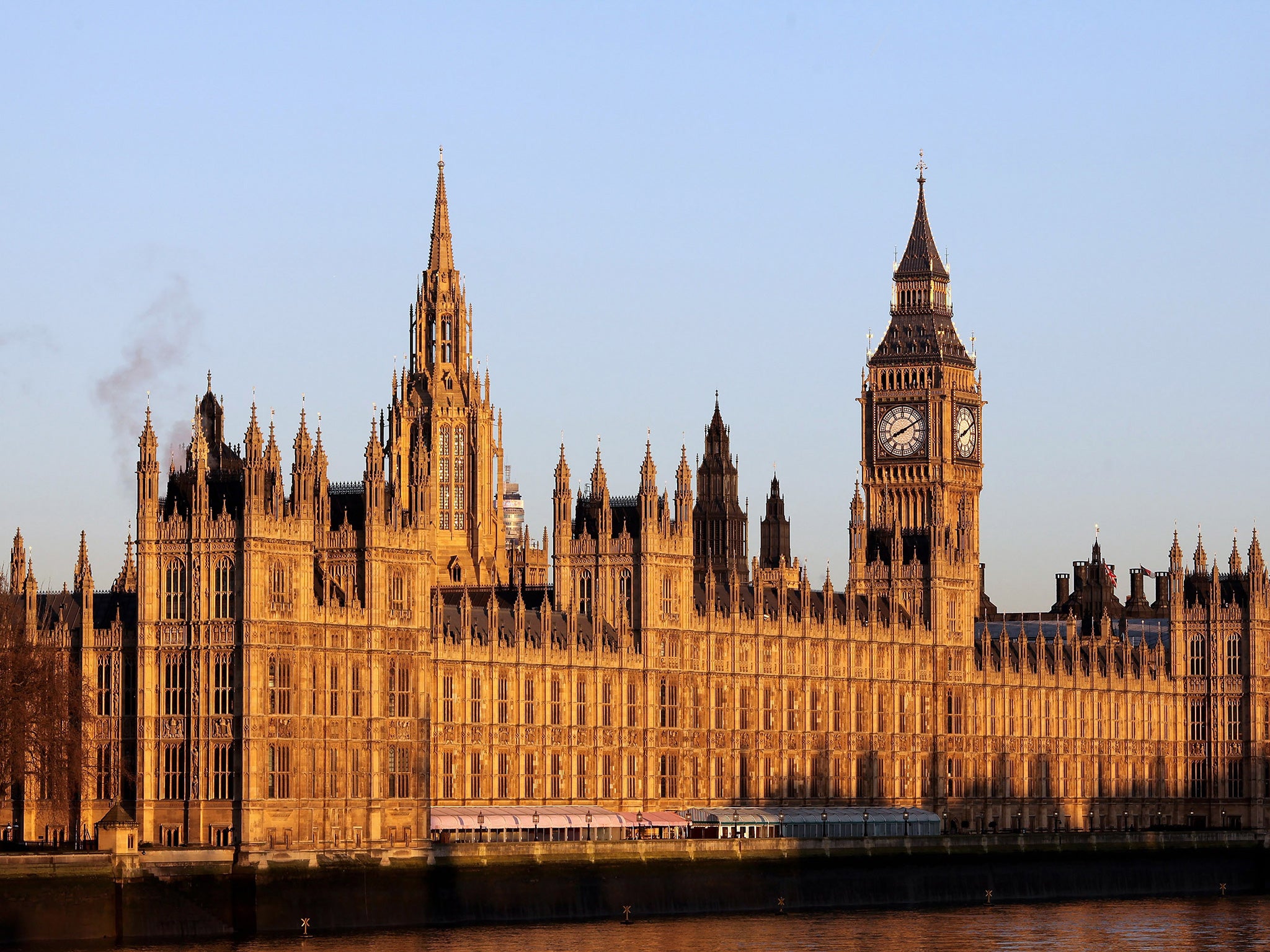UK poll shows two-thirds of people feel they have hardly any or no influence over laws, taxes and public spending
Many think the voting system is unfair, the House of Lords is undemocratic and they struggle to see the benefits of EU membership

British democracy is in crisis, according to a survey made available exclusively to The Independent on Sunday. Most citizens feel they have too little say in a country that is too centralised. They think the voting system is unfair, the House of Lords is undemocratic and they struggle to see the benefits of EU membership.
Yet people seem pessimistic about an improved voting system, and there is no consensus about how far power should be devolved.
The “People and Power” survey carried out this month by Opinium finds that two-thirds of people (67 per cent) feel they have hardly any influence or no influence at all over decisions on laws, taxes, public spending and planning.
More than half (59 per cent) say tax and spending decisions should be taken below the UK-wide level: 21 per cent said they should be decided by England, Scotland, Wales and Northern Ireland separately; 31 per cent said at city or county-level, and 7 per cent by the village, small town or “few streets” of a city.
Most people in England support English devolution: 28 per cent want an English parliament, 15 per cent want English regional assemblies and 12 per cent want power devolved to city-regions such as Greater Manchester. Only 22 per cent want to keep things as they are, although 21 per cent say they don’t know.
The findings are based on an online survey of 2,147 UK adults carried out between 21-25 August 2015. Results have been weighted to be representative of age, sex, region, working status, social grade and general election vote.
The survey also teased out some of the contradictions in public attitudes to devolution. A slim majority (51 per cent) agreed that areas of the UK should be allowed to set their own tax rates, but almost as many (48 per cent) agreed that tax rates should be the same nationwide, to prevent areas competing against each other by cutting taxes. A majority (62 per cent) agreed it would be “impossible” for areas to set their own immigration policies.
Despite the support for devolution, only 17 per cent overall (39 per cent in Scotland) think the UK will break up within 15 years, and only 13 per cent think that it should (36 per cent in Scotland).
The survey was carried out before last week’s announcement of new life peers, but findings reveal that 52 per cent say “people who decide our laws should always be elected” and only 28 per cent say it is “better to have the experience and knowledge” of the current House of Lords.
The survey shows the scale of people’s disillusionment with the voting system after the general election, in which the Conservatives won a majority in the House of Commons on just 37 per cent of the UK vote. Only 26 per cent agree that “the way votes translate to seats is democratic”: 39 per cent disagree. A majority (52 per cent) agree that the voting system “worked in the old days” but is “out of date”.
Again, however, attitudes appear contradictory. More people agree the current system is “unfair” (42 per cent) than agree it is the “best compromise” (37 per cent). Yet more people also agree that the “UK system is better than any of the alternatives” – by 34 per cent to 29 per cent. After the heavy defeat of the 2011 referendum on changing to the alternative vote, which would allow people to mark their ballot in order of preference, there is some appetite for another referendum – 46 per cent say it would be worth it, 35 per cent say it wouldn’t be.
The only subject on which there is majority support for a referendum is EU membership: 58 per cent say that David Cameron’s referendum – which may be held next year – would be worth it. Attitudes towards the EU are on the hostile side of indifference, with 34 per cent saying that the economy would be better if the UK left the EU as against 30 per cent who say it would be worse; while 35 per cent say they don’t know or it would be “about the same”.
Despite the common assumption that people want referendums on most subjects, other referendums are less popular. Only 40 per cent say one on an English parliament would be worth it, and only 36 per cent want one on the return of the death penalty.
Alan Johnson, the Labour MP and a former home secretary, commented on the survey: “All politicians preach the virtues of involving the public more in decisions that affect their lives, but until now we’ve had insufficient information on the public’s attitude to whether they believe such sentiments to be genuine and, indeed, whether and how far this distillation of power should continue.”
Join our commenting forum
Join thought-provoking conversations, follow other Independent readers and see their replies
Comments